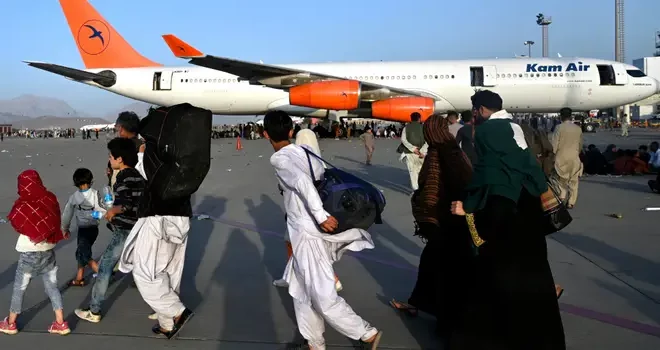
The Federal Admission Program, initiated in October 2022, was supposed to bring up to 1,000 Afghans per month to Germany. But it has been plagued with problems. Germany has already taken in numerous former local employees and other Afghans who were particularly at risk immediately after the withdrawal. As of May, however, not a single Afghan had arrived through the new program, and thousands of human rights activists, journalists, and others at risk remain stuck in Afghanistan or neighboring countries, or inexplicably denied admission.
In March the Foreign Ministry halted the program out of fear the screening measures were inadequate. As of mid-June, it had only just restarted. The Interior Ministry and the Foreign Office regularly update German nongovernmental organizations about the program, but others have little access to the process. And so the only way I could get information about how they handle cases of human rights defenders and journalists was through our Human Rights Watch office in Berlin. If it is hard for me getting this information, it is nearly impossible for an Afghan 8,000 kilometers away, with little money and limited access to the internet.
Of course, Germany isn’t the only country to fall far short on its promises to Afghans in 2021. The United Kingdom has taken very few Afghans who had not worked directly with the UK government, and those who were relocated have been let down. Nearly 9,000 Afghans who have been stuck in temporary accommodation there now face eviction with no place to go.
The US left behind thousands of interpreters, support staff, and others who should have been eligible for special visas, though the program has now been extended through 2024. NATO countries that promised to resettle Afghans have been abysmally slow. And the focus on evacuating Afghans who participated in the military effort has disadvantaged women at risk, including women’s rights defenders.
Foreign Minister Annalena Baerbock has said that Germany’s program is meant to give those persecuted by the Taliban “a chance of a free, self-determined and secure life.” Acknowledging that the task would be massive, she vowed, “We won’t let up.” For the thousands of Afghans like Sharafat hanging on those words, they ring hollow.
